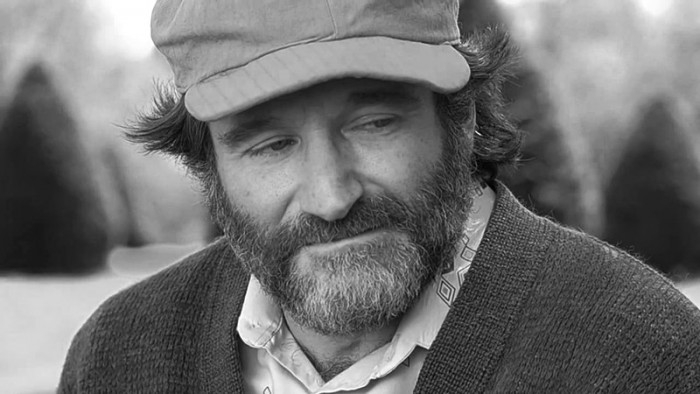
I remember the moment when Robin Williams passed away as if it was yesterday.
“It’s a sudden and tragic loss. He had suffered from depression lately,” they said.
Wealth, fame and recognition didn’t help my favorite actor—an individual with a keen view of life—beat his depression. What chance do us mere mortals have then?
Do you know that 66 percent of people suffering from depression don’t consider it necessary to visit a doctor? What’s more, women are more likely to suffer from depression than men.
As we age, we become more susceptible to attacks of depression. Still, it’s not a reason to consider ourselves depressed every time we feel sad or emotionally burnt out. At the same time, if we see that our sadness becomes deeper and darker, and if relaxing weekends or emotional restarts are not able to save us from burnouts at work, then it’s high time to play rough.
I’ve had bad luck with experiencing emotional burnout at work. I’ve had, what I would describe as, a truly disgusting feeling that turned into a serious mental illness. This is now a common experience in the world that can turn happy lives miserable.
And I must say, I am rather surprised that many continue to believe that work addiction actually has healing properties:
“Go and work!”
“Do something, and you’ll have no time to grieve.”
How often do we hear this kind of advice while experiencing chronic fatigue or feeling lost and apathetic?
Ernest Hemingway considered work “the most important thing in life which distracts from every misfortune” and “cures almost anything.” I do respect Mr. Hemingway, but I am curious about what he did when work was the reason for his depression.
Did the principle of fighting fire with fire help?
When stressed, we do our best to nip this problem in the bud. We start small. Tactics such as taking breaks, meditation, playing sports, sleeping well and other methods of taking care of ourselves work up to a certain point.
I tried them too. Moreover, I took it a step further and applied the chemistry of human emotions to fighting my burnout at work. (The hardest part was synchronizing my biorhythms with the time of day. I am not an early bird.) And surprisingly, they work. Again, up to a certain point.
Here’s the kicker:
We all grasp for any chance to live a happy life. The problem is, many folks are self-reliant people who consider themselves too smart to ask for help. It’s more likely that we’ll rely on motivational life-hacks from the internet than confess we have a problem impossible to solve single-handedly.
I know what I’m talking about, because I was that kind of smart-ass too.
Point of No Return.
Our sadness can be light and short, relating to some negative moments of life—and it can be longstanding, disturbing us from work, relationships and well-being.
The first step to solving a problem is admitting we have one.
But here another problem comes:
By the time we are ready to admit the problem, it becomes too late to solve it all alone. It is the very point of no return when all those tips about grooming and exercising stop working.
Our condition becomes something as follows:
“I try so hard to follow the advice. I use my physical and psychological abilities to the max. I work a lot, pulling the devil by the tail, but that’s all in vain… Well, it seems I don’t try hard enough. More work is what can help.”
Falsely assuming that hard work can help us deal with stress, we turn this stress into emotional burnout, and thereby take one step closer to the jaws of a creepy and omnivorous monster.
He-Who-Must-Not-Be-Named.
Okay, I’ll do that!
Oh, hi depression!
How I was able to beat this monster? It wasn’t easy, and only complete acceptance and emotional restart helped me escape medical intervention. (Yes, we all fear it, as the devil fears the holy water.)
Call a Cat a Cat.
Most people find it hard to do. They consider themselves too busy or too weak to change something.
Neither statement is true.
Write down all the factors causing your stress. Be honest. Come up with several ideas on how you could decrease its influence. We all are gurus of ignoring stress, and that’s why spelling out its details is the first chance to signal our brains about getting the foot in the door.
Also, it helps to find the stress source. Doesn’t it make sense to start here?
Ask for help. It’s difficult to do, especially for those refusing to confess they can’t solve the problem alone, but asking for help doesn’t mean we are stupid, useful or incapable.
Here is what we can do:
>> Admit we need help and why we need it.
>> Think of who could help you best. With me, it’s my mother and sister.
>> Ask them for help, and do the same every time you need it.
People enjoy helping others, as it makes them feel needed.
Emotional Restart.
When I experienced emotional burnout, I had no other alternative but turning over a new leaf.
It’s different for each of us: someone quits a job, someone takes a vacation, and others decide to pass new projects. It’s hard to say what would work for each separate person, but we can minimize a stress level as far as possible.
Delegate tasks. Being busy as a bee will not help you become well-liked. Don’t hesitate to delegate tasks when possible.
Say no and hold ground. It saves from drowning in work and helps us realize how often we agreed without thinking of consequences.
Find time to follow your inclinations. At least one day should be devoted to exercise and leisure, reading and any other hobbies we have.
There’s nothing wrong with us being unable to fit the expectation of others.
The worst thing about depression is the sense of losing ourselves, so let’s find a way to go beyond the gloss and do our thing.
Author: Emily Johnson
Image: Movie Still
Editors: Travis May; Yoli Ramazzina






Read 7 comments and reply